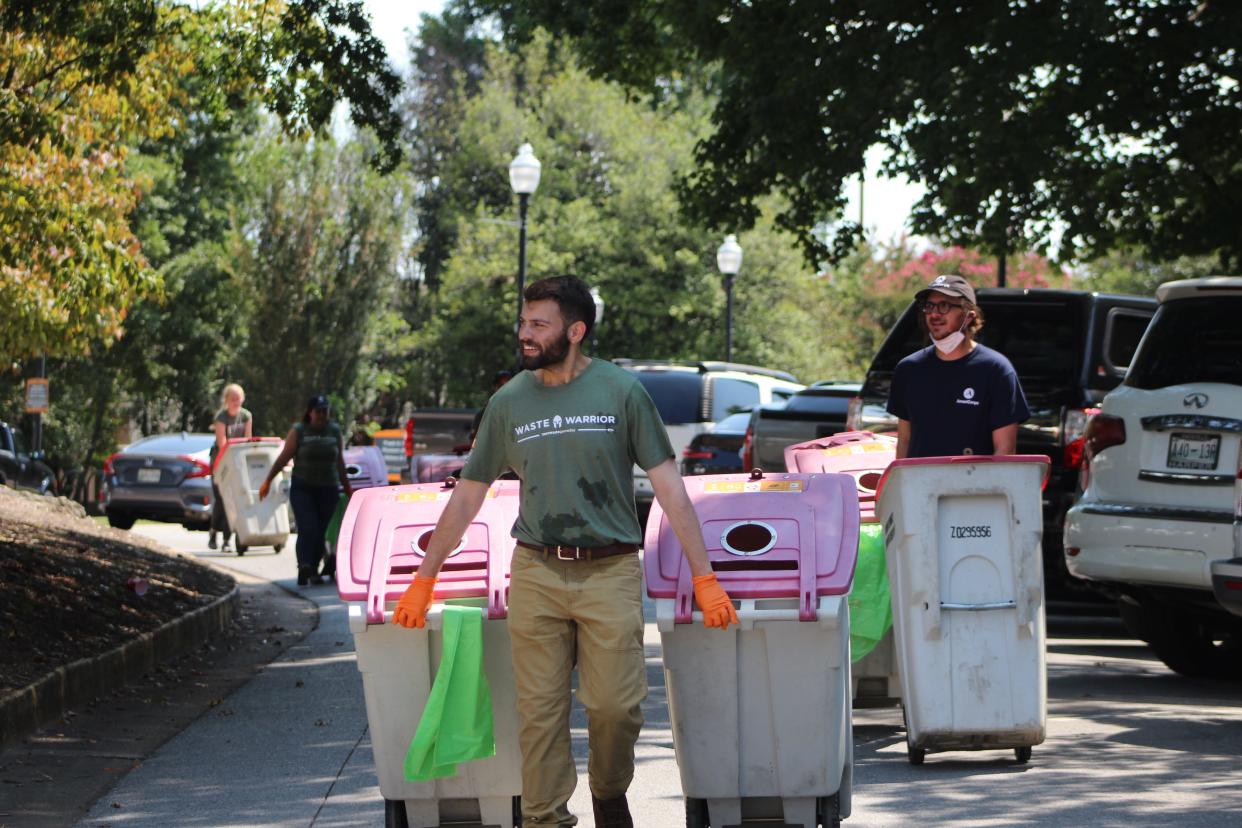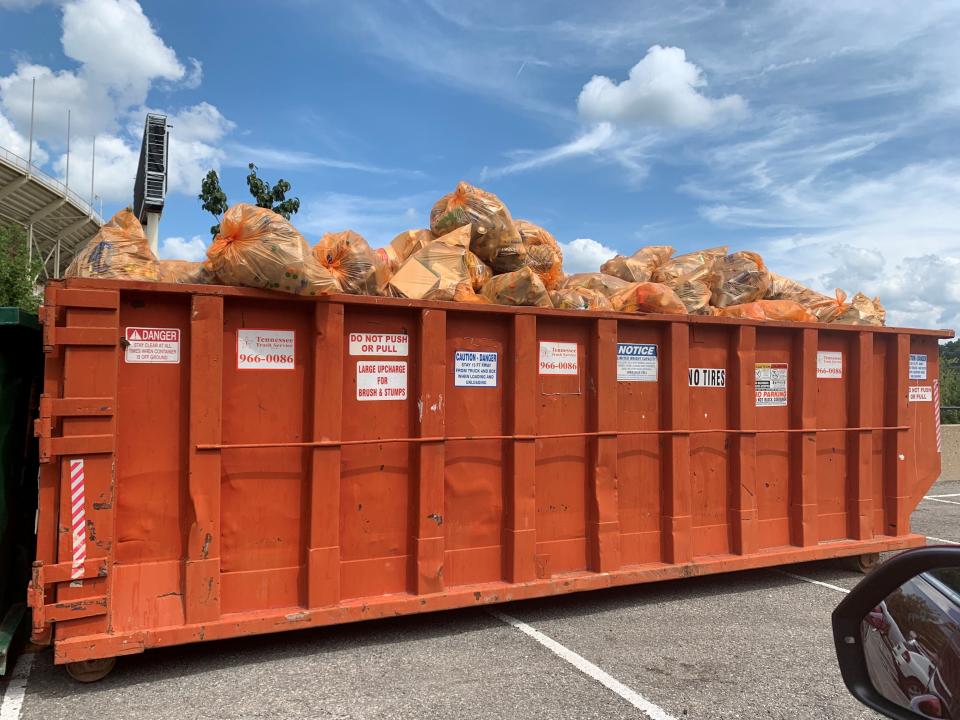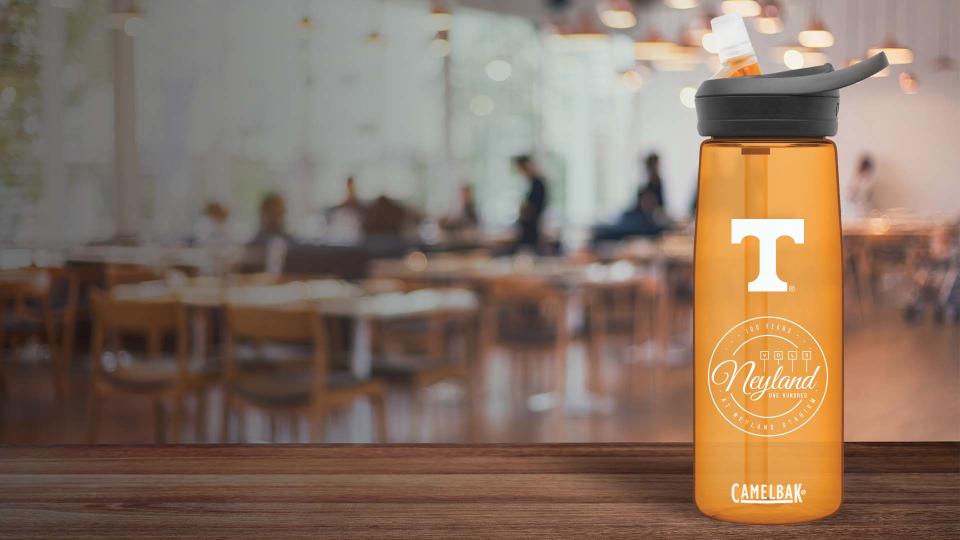New technology will turn Neyland Stadium's plastic trash into treasured mementos

The University of Tennessee at Knoxville and Eastman Chemical Company are partnering to turn Neyland Stadium trash into treasure.
Plastic cups and bottles get recycled after every home game at Neyland Stadium, but for the next two weeks, Eastman will use a new technology to upcycle discarded trash into durable, reusable water bottles commemorating Neyland's storied history.
Tennessee games produced, on average, more than 23 tons of landfill waste in 2019, according to UT's Office of Sustainability. One way the university diverts waste is through recycling bottles and cans, but not everything that goes into the recycling bin can be recycled.
“Today, far too little plastic waste is actually recycled – either from lack of collection, or because it simply can’t be recycled by traditional methods. Most plastic ends up in landfills, or worse, the environment,” Scott Ballard, president of Eastman’s plastics division, said in a press release.
First-gen UT veteran: How a first-gen University of Tennessee veteran helps others get past 'hard days'
Retiring: UT Pride of the Southland Band director retiring from the band, which is 'almost like a family'
That's where the new technology comes in.
“Fans will be giving us plastic on game days, and we’ll give back reusable bottles – a demonstration of one way we can tackle plastic waste by working together,” Ballard said.

What is molecular recycling?
Molecular recycling breaks waste down to its molecular level. This is different from traditional mechanical recycling, which cleans, chops and melts existing plastic.
Mechanical recycling is an effective and environmentally friendly process, but it has its limitations. The plastic must be cleaned, the quality of the plastic degrades each time it's recycled and the product will ultimately end up in a landfill.
Molecular recycling uses plastics that otherwise might become trash. It upcycles the plastic back to its original quality.
Reducing waste at UT
Eastman and UT will collect and recycle the plastic cups and bottles this Saturday during the game against the University of South Alabama and next week against Vanderbilt University.
Eastman will then use this recyclable material to create plastic CamelBak water bottles using its Tritan Renew plastic. The bottle will feature a graphic commemorating Neyland Stadium's 100th anniversary. Fans can register to receive a bottle at both games.

"I really am excited about the molecular recycling technology," Jay Price, the sustainability manager at UT, said in a phone interview with Knox News. "I think it's really going to move recycling in a whole new direction, and the fact that it's so close here to the University of Tennessee is really exciting as well."
UT has been working with Eastman on its Zero Waste Game Day initiative, which aims to keep at least 90% of garbage from home games out of landfills through recycling, composting and food donation.
More than 100 students have volunteered for the program in the past, according to the UT Sustainability Office. These "waste warriors" collect recyclable materials on game days and monitor bins outside the stadium to help people sort their trash correctly.
Learn more about UT's Zero Waste Game Day initiative at sustainability.utk.edu.
Becca Wright: Higher education reporter at Knox News
Instagram | Twitter | Email | 865-466-3731
Enjoy exclusive content and premium perks while supporting strong local journalism. To get started, visit knoxnews.com/subscribe.
This article originally appeared on Knoxville News Sentinel: Neyland Stadium's plastic trash will be used to create mementos

